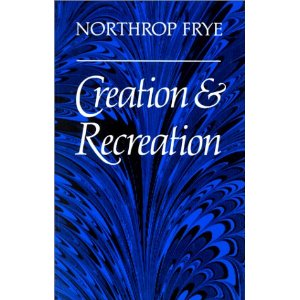Yesterday’s Quote of the Day was from Wilde’s “The Critic as Artist.” Here’s what Frye has to say about it in Creation and Recreation:
In my first chapter I quoted a passage from Oscar Wilde’s essay “The Critic as Artist.” This essay builds up an argument that seems to make an exaggerated and quite unrealistic importance out of the reader of literature, the critic being the representative reader. He is paralleled with the artist in a way that seems to give him an equal share at least in what the artist is doing. Here again Wilde is writing from the point of view of a later generation. For many centuries the centre of gravity in literature was the hero, the man whose deeds the poet celebrated. As society slowly changed its shape, the hero modulated to the “character,” and in Wilde’s day it was still the creation of the character, as one sees it so impressively in Shakespeare, Dickens, and Browning, that was the primary mark of poetic power. At the same time the Romantic movement had brought with it a shift of interest from the hero to the poet himself, as not merely the creator of the hero but as the person whose inner life was the real, as distinct from the projected, subject of the poem. There resulted an extraordinary mystique of creativity, in which the artist became somehow a unique if not actually superior species of human being, with qualities of prophet, genius, wise man, and social leader. Wilde realized that in a short time the centre of gravity in literature critical theory would shift again, this time from the poet to the reader. The dividing line in English literature is probably Finnegans Wake, where it is so obvious that the reader has a heroic role to play. (CW 4, 75)

